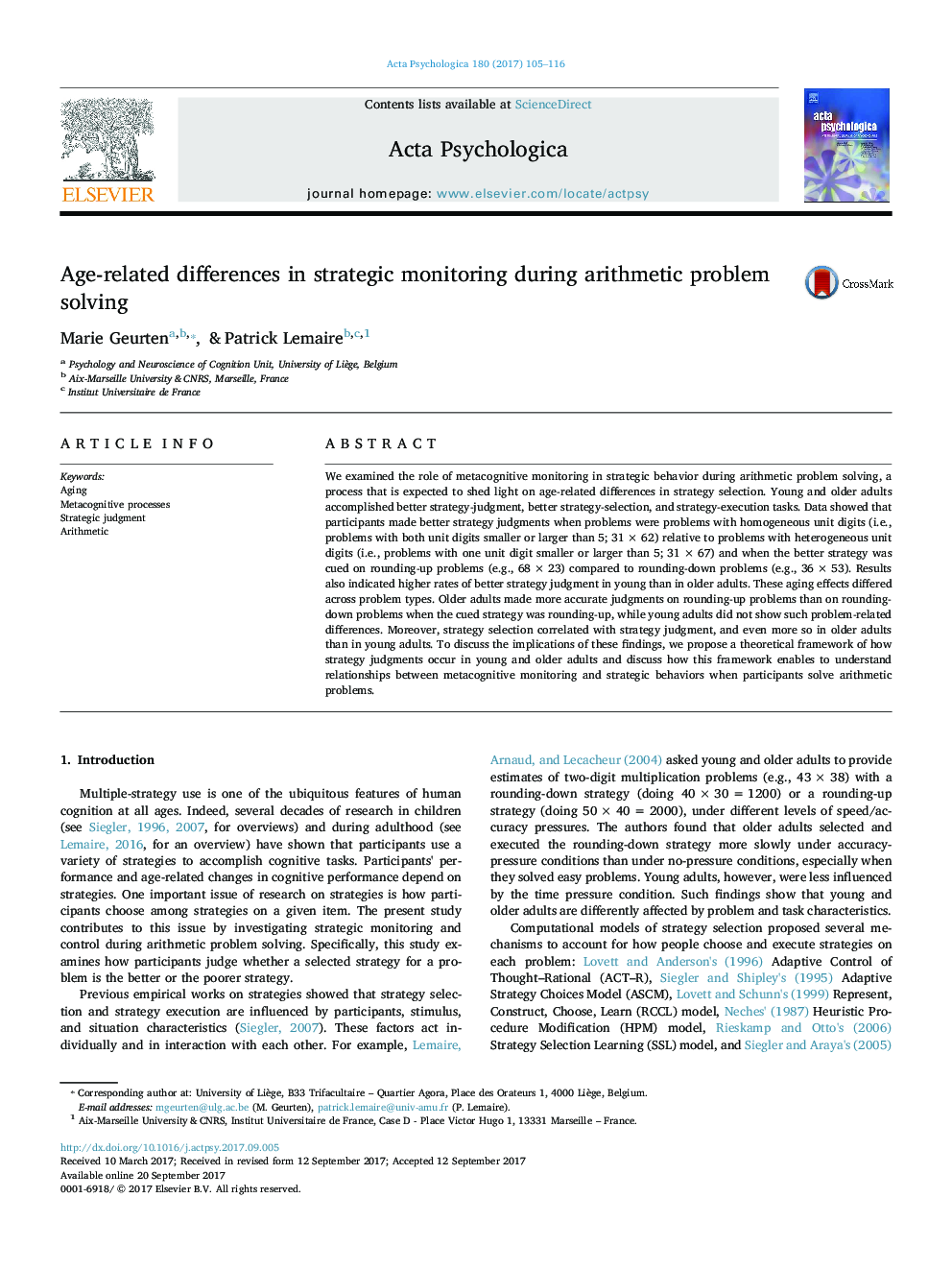| Article ID | Journal | Published Year | Pages | File Type |
|---|---|---|---|---|
| 5040187 | Acta Psychologica | 2017 | 12 Pages |
â¢We examined the role of metacognitive monitoring in strategic arithmetic behavior.â¢Young and older adults accomplished a better strategy judgment tasks.â¢Data showed higher rates of better strategy judgment in young than in older adults.â¢These aging effects depended on the problem's features.â¢We propose a framework of how strategy judgments occur in young and older adults.
We examined the role of metacognitive monitoring in strategic behavior during arithmetic problem solving, a process that is expected to shed light on age-related differences in strategy selection. Young and older adults accomplished better strategy-judgment, better strategy-selection, and strategy-execution tasks. Data showed that participants made better strategy judgments when problems were problems with homogeneous unit digits (i.e., problems with both unit digits smaller or larger than 5; 31Â ÃÂ 62) relative to problems with heterogeneous unit digits (i.e., problems with one unit digit smaller or larger than 5; 31Â ÃÂ 67) and when the better strategy was cued on rounding-up problems (e.g., 68Â ÃÂ 23) compared to rounding-down problems (e.g., 36Â ÃÂ 53). Results also indicated higher rates of better strategy judgment in young than in older adults. These aging effects differed across problem types. Older adults made more accurate judgments on rounding-up problems than on rounding-down problems when the cued strategy was rounding-up, while young adults did not show such problem-related differences. Moreover, strategy selection correlated with strategy judgment, and even more so in older adults than in young adults. To discuss the implications of these findings, we propose a theoretical framework of how strategy judgments occur in young and older adults and discuss how this framework enables to understand relationships between metacognitive monitoring and strategic behaviors when participants solve arithmetic problems.
